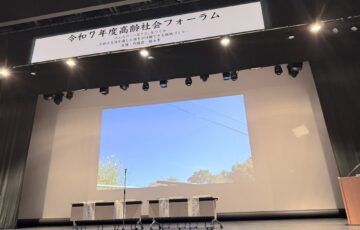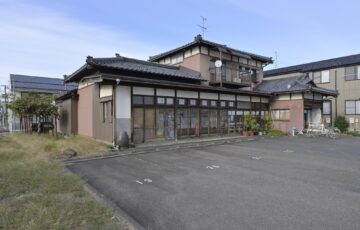米国ワシントンDCの非営利法人Ibashoが提唱する8理念で、Ibasho Japanも8理念をベースとして活動しています。
コンテンツ
高齢者が知恵と経験を活かすこと (Elder Wisdom)
今の社会では、高齢者は周りに迷惑をかける人、面倒をみてもらう人だと思われがち。けれども、豊かな知恵や経験をもつ高齢者は、地域にとってかけがえのない財産。高齢者が頼りにされ、自信を持てるようにしよう。
Older people are a valuable asset to the community (Elder Wisdom):
In modern society, the elderly are often considered to be a burden and as people who need care and looked after. However, the elders’ wealth of wisdom is something to be valued and treasured. Ibasho believes in a society where the elderly can contribute with confidence and are leaned on and valued.
あくまでも「ふつう」を実現すること(Normalcy)
誰かが管理し過ぎたり、がんじがらめの規則があったり、時間ごとにスケジュールが決められていたりする施設ばかりじゃ、暮らしは窮屈になる。誰にも強制されず、いつでも気軽に立ち寄れて、何となく好きなことができる、そんな「ふつう」の場所にしよう。
Creating informal gathering places (Normalcy):
Living in institutions: lives with strict rules and schedules are confining and limiting. Ibasho believes in places of normalcy where elders can pop in at any time at their leisure.
地域の人たちがオーナーになること(Community Ownership)
誰かが作ってくれると受身になるのでなく、地域の人たちが良いことも、悪いことも引き受ける「当事者」になって場所を作っていきたい。みなで知恵や力を出し合い、助け合って、地域の自慢の場所にしよう。
Community members drive development and implementation (Community Ownership):
Ibasho believes in each member of the community sharing a sense of ownership and pride of place. Each place, whether a café or home, it is not something that is created for them but it is created with them.
地域の文化や伝統の魅力を発見すること(Culturally Appropriate)
地域には独自の文化や伝統がある。日々の生活ではあまり意識しなくても、じっくりと見つめればたくさんの魅力に気づくはず。他を真似せずに、地域ならではの魅力を発見していこう。
Local culture and traditions are respected (Culturally Appropriate):
Each community has its own history and culture. Perhaps it is not something you can easily put your finger on. Ibasho is where one can discover and reflect on the treasures of the community.
様々な経歴・能力をもつ人たちが力を発揮できること(De-marginalization)
若い人、高齢の人、障がいのある人・ない人、子育て・介護中の人、社会に馴染めないと悩む人など、地域には様々な人が暮らしている。「できないこと」ばかりの弱者と思い込んで孤立しなくていいように、それぞれが「できること」を持ち寄って、互いに支え合おう。
All residents participate in normal community life (De-marginalization):
A cross section of a community includes the young, elderly, disabled, family rearing, care taking and even the socially disconnected. Ibasho is a place to not to worry about what one “can not” do but rather what one “can” do.
あらゆる世代がつながりながら学び合うこと(Multi-generational)
同じ世代の人と付き合うのは話も合うし、居心地がいいけれど、同じ世代で固まってるだけじゃもったいない。子どもや若者は人生の先輩である高齢者から、高齢者は新しいことに敏感ですぐ吸収してしまう子どもや若者からというように、世代を越えて学び合える場所にしよう。
All generations are involved in the community (Multi-generational):
Connecting within one’s own generation is easy and comfortable but why stop there? Ibasho believes in a place where the young learn from the richly lived lives of the elderly and the elderly learn from the young’s ability to pick up new things quickly.
ずっと続いていくこと(Resilience)
場所を続けていくには「環境」「経済」「人」の3つのつながりを考えよう。それは、暮らしに恵みを与えてくれる自然環境を破壊しないこと、必要なお金を自分たちでまかなうこと、人と人との関係を大切にすること。3つのつながりを大切にしながら、ずっと場所を続けていくこと。そこから、ささやかでもいい、地域や国境を越えたつながりを築いていこう。
Communities are environmentally, economically, and socially sustainable (Resilience):
Ibasho is a place where we strive for the environment, economy and people to be in harmony. Ibasho will protect the nature that brings bounty to life, be economically self sufficient, and cherish the connections between each individual. How special it will be if those connections forge beyond the boundary of the community or even beyond its own country.
完全を求めないこと(Embracing Imperfection)
初めから完全であることを求めずに、その時々の状況に対応しながら、じっくりと、ゆっくりとやっていけばいい。その道のりは地域によって違うはず。だから、今は不完全であることを焦らずに、変われるという可能性を信じたい。時間とともに、人とともに、柔らかに歩んでいこう。
Growth of the community is organic and embraces imperfection gracefully (Embracing Imperfection):
Ibasho does not strive for immediate perfection. It is adaptive and flexible in working with life, as life is forever changing. Each community has its own path to balance and perfection. Ibasho believes in the possibility of change. With time, with people, Ibasho will gently embrace imperfection.
- bashoの8理念の表現は、2012年4月に、ワシントンDCのIbashoの代表である清田英巳さんと、認知症をもつ高齢者に対する介護と社会概念の変革を提唱する医師のAllenPowerさんが、ロックフェラー財団からの補助を受けて確定させたものである。
- Ibashoの8理念の日本語訳は、『Ibashoカフェ:大切にしたいこと』(Ibasho, 2013年6月13日)より。



